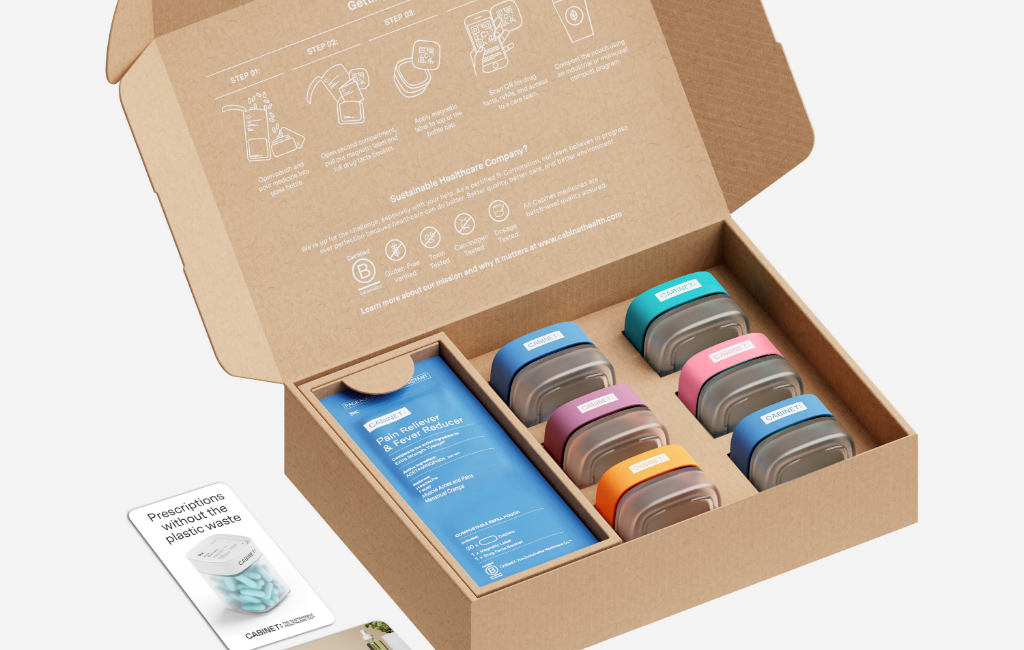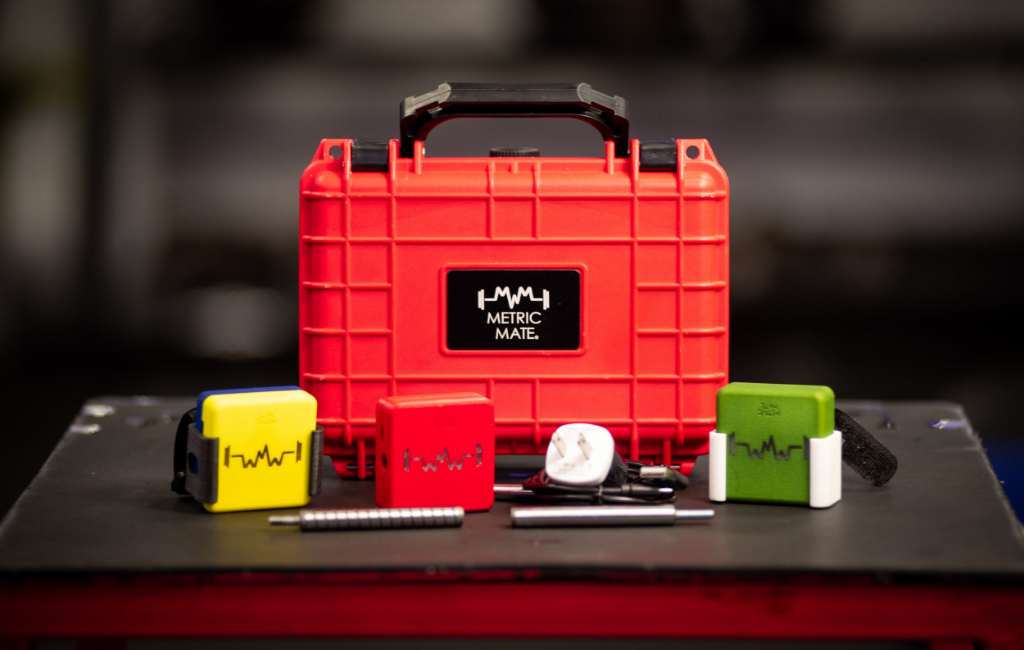Kinfield Skincare
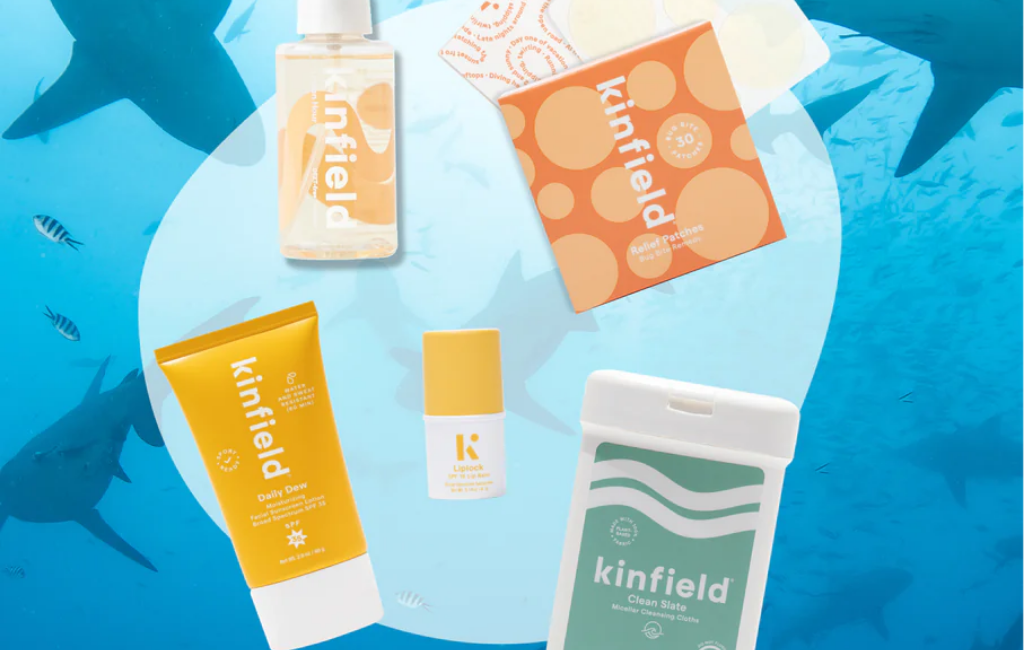

DEAL
EPISODE SUMMARY

Asking For:
$250,000 for 5%
Investor:
Barbara Corcoran, Tony Xu (50/50)
Deal:
$250,000 for 10%
PRODUCT SUMMARY
Kinfield is a modern outdoor brand offering clean bug sprays and sun care products made with natural ingredients.
WATCH HERE
IN A RUSH?
Click these to jump to the section you want to read.
Background Story
Nichole Powell, the founder of Kinfield, grew up in Minnesota, where she was familiar with the annoyance of using traditional bug sprays and chemical sunscreens. Inspired by her time in Indonesia and her encounter with a unique strain of citronella, she founded Kinfield to provide clean bug sprays and sun care products. Her goal was to offer environmentally friendly solutions that protect users from bugs and the sun without the use of artificial and harmful ingredients.
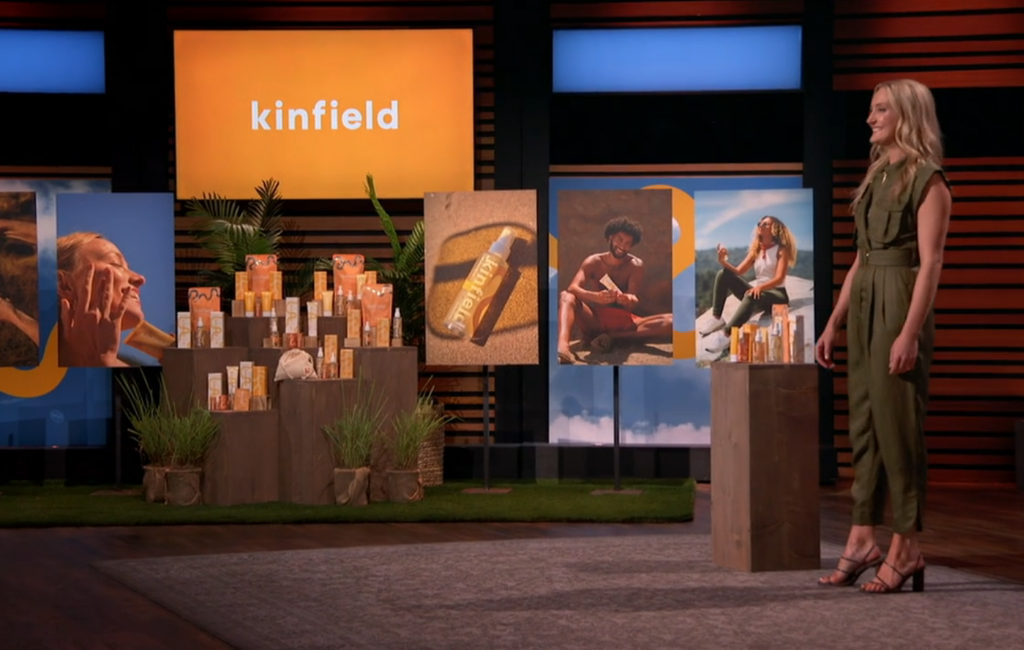
The Product
Kinfield’s product line includes Golden Hour, a DEET-free bug repellent made with citronella, lemongrass, and vanilla to provide three hours of protection against mosquitoes.
In addition to bug repellent, Kinfield offers a biodegradable repellent wipe, recovery products, and a line of mineral sunscreens. The sunscreens and bug repellents are separate products, and they are known for their pleasant scents and effectiveness.
The bug repellents are made from natural ingredients and provide protection from mosquitoes without the use of DEET. The sunscreens are mineral-based, offering protection from the sun without harsh chemicals.
Kinfield products can be purchased online through their website, where the average order value is $45. The prices for the products range from $22 to $34, with high profit margins, varying between 79% and 85%.
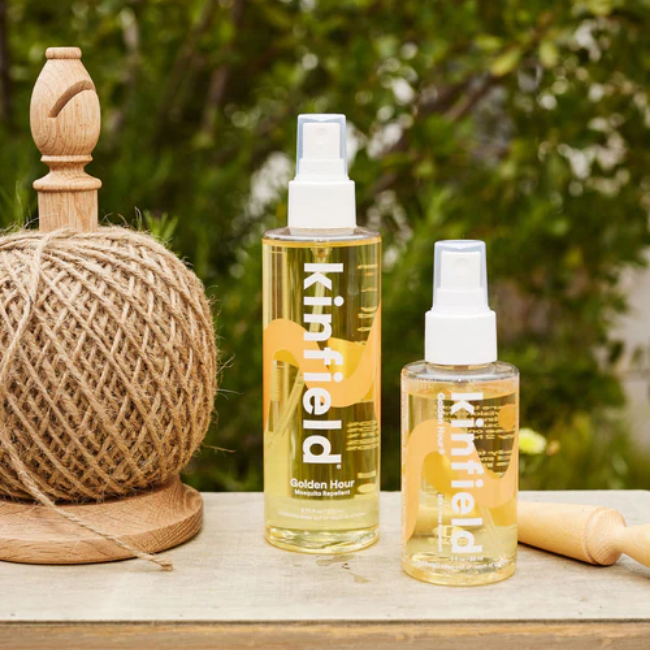
How It Went
The company’s position before Shark Tank
Kinfield, founded in 2019, has shown significant growth in its sales over the years. In 2020, they achieved $187,000 in sales, and in 2021, their sales reached $565,000. In 2022, they were on track to hit $2.1 million in sales, positioning the company for continued growth. Despite the rapid increase in sales, Kinfield had not yet turned a profit and expected to become profitable in about a year and a half.
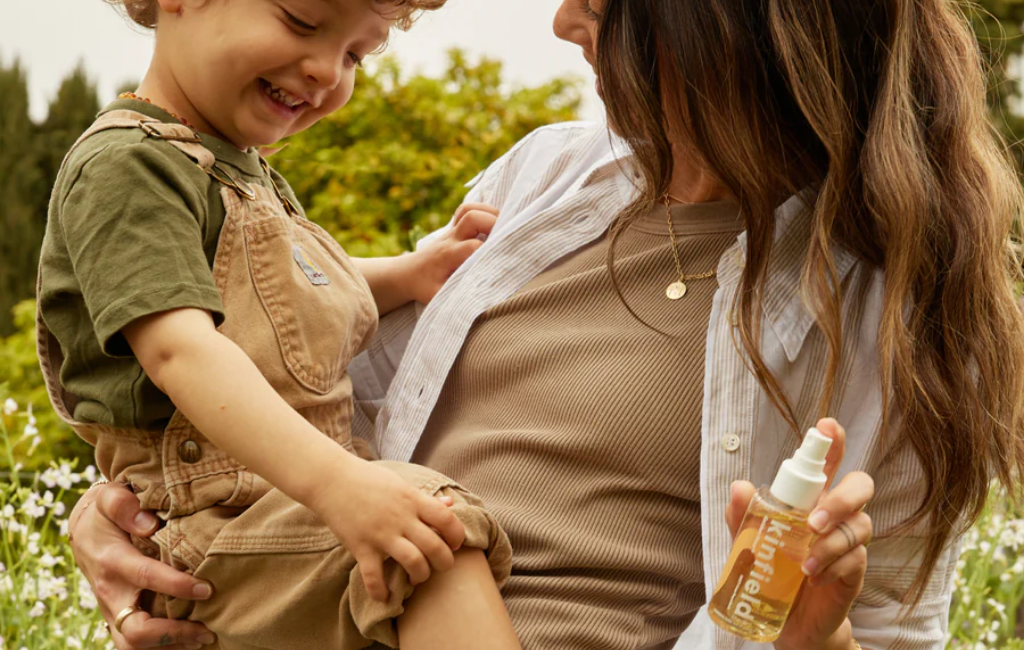
The company’s sales primarily come from direct-to-consumer online channels, with 80% of their customers purchasing products directly through their website. The company’s strong margins, averaging between 79% and 85%, indicate a healthy profit potential. Nichole Powell mentioned that alongside raising investor capital, Kinfield was also utilizing lines of credit.
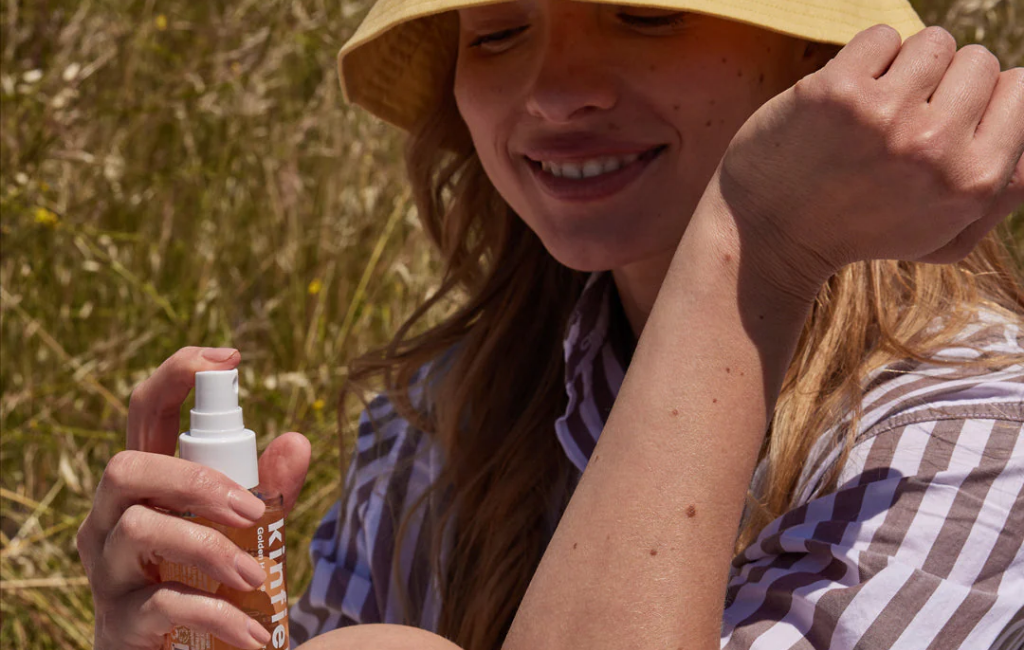
While their sales are growing rapidly, they were incurring costs, especially in marketing, with a customer acquisition cost of around $26. Additionally, Kinfield had less than half a million dollars in debt, which fluctuated based on their monthly expenses. The company structure and financial health seem solid, and their decision to expand into retail raised questions about the additional costs associated with entering this channel, which some of the Sharks were concerned about.
The Negotiations:
Nichole Powell entered the Shark Tank seeking a $250,000 investment for a 5% equity stake in her company, Kinfield. She presented herself as an entrepreneur from Minnesota who had a strong vision for providing clean bug repellents and sun care products for outdoor enthusiasts. All the Sharks expressed their admiration for the products and the company’s growth. However, they were concerned about the profitability timeline and the potential challenges associated with entering the retail market.
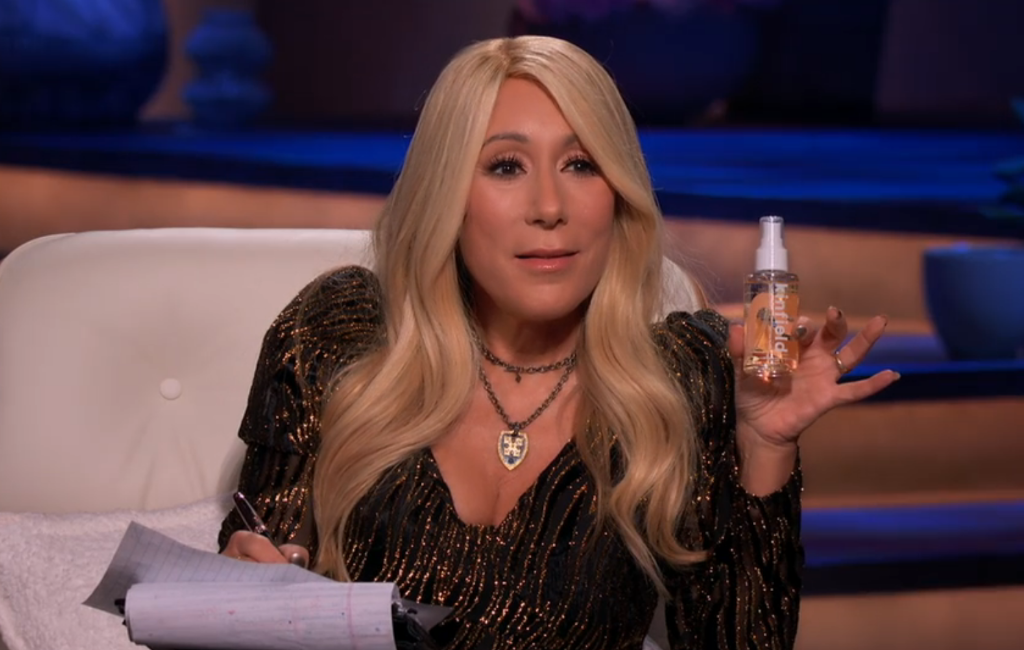
Barbara Corcoran and Tony Xu made an offer together, offering $250,000 for a 10% equity stake with no royalty. Their straight equity deal appealed to Nichole because she was hesitant about royalty offers. This offer had a significant impact on the negotiation. Lori Greiner joined the offers, proposing a matching deal of $250,000 for 5% equity + $4 royalty per unit. Mark Cuban did not extend an offer, citing concerns about the royalty structure in some of the offers.
Ultimately, Nichole chose the joint offer from Barbara Corcoran and Tony Xu. They agreed to invest $250,000 for a combined 10% equity stake without the royalty clause, providing the clean equity deal that Nichole preferred. Nichole accepted their offer, and she expressed her excitement about the partnership.






